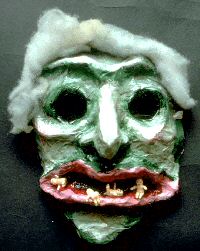 Researchers from the University of Pennsylvania have just wrapped up a number of experiments into attractiveness that demonstrate the power and extra advantage that beauty brings. Incredibly, their findings, published in the journal Emotion, indicated that our brains can judge a face's attractiveness in just over a hundredth of a second.
Researchers from the University of Pennsylvania have just wrapped up a number of experiments into attractiveness that demonstrate the power and extra advantage that beauty brings. Incredibly, their findings, published in the journal Emotion, indicated that our brains can judge a face's attractiveness in just over a hundredth of a second. The researchers believe that this high speed assessment faculty may indicate that definitions of beauty are "hardwired" into our brains. "We're able to judge attractiveness with surprising speed and on the basis of very little information," said Ingrid Olson, a researcher at Penn's Center for Cognitive Neurosciece.
To time the assessment process, the researchers asked the study participants to rate pictures of faces taken from three different high school yearbooks which were shown for just 0.013 seconds on a computer screen. Although the participants reported that they could not see the faces and that they were guessing on each test, they were able to accurately rate the attractiveness of those faces. "Seen rapidly, viewers were able to make what amounted to an unconscious, albeit accurate, assessment of physical beauty," said Olson.
Additionally, the people who participated in the studies were more likely to associate pretty faces with positive traits. "It seems that pretty faces 'prime' our minds to make us more likely to associate the pretty face with a positive emotion," said Olson.
The researchers say that the results suggest that physically attractive people have advantages that unattractive people do not. "Research has demonstrated time and again that there are tremendous social and economic benefits to being attractive," Olson said. "Attractive people are paid more, are judged more intelligent and will receive more attention in most facets of life. This favoritism, while poorly understood, seems to be innate and cross-cultural. Studies suggest that even infants prefer pretty faces," she concluded.
Based on material from the University of Pennsylvania





